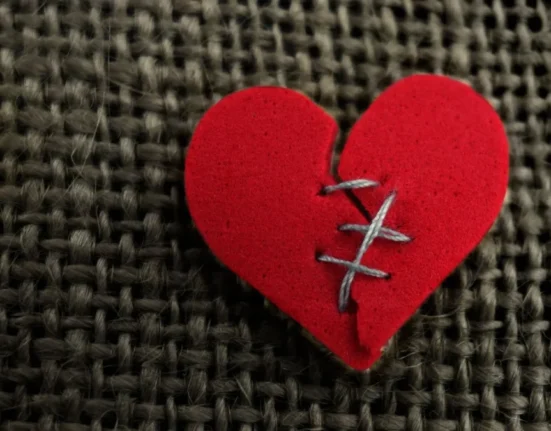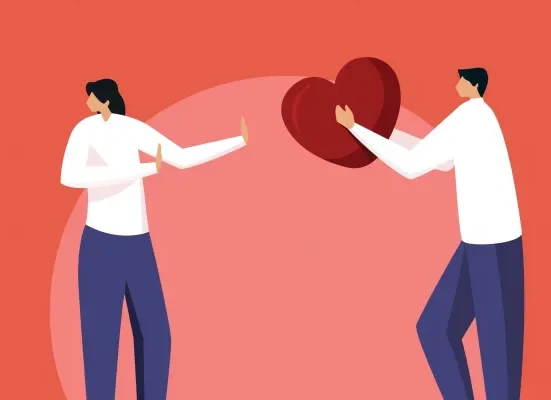Last Updated on November 6, 2025 by Rachel Hall
- The 5 Types of Couples: Discover Which Type of Couple You Are and What the Five Types Reveal About Your Relationship
- Why Your Couple Type Matters More Than You Might Think
- The 5 Types of Couples (According to the Gottman Method)
- What Type of Couple Are You?
- Can Different Couple Types Work Together?
- Final Thoughts: Relationships Can Evolve
The 5 Types of Couples: Discover Which Type of Couple You Are and What the Five Types Reveal About Your Relationship
When it comes to understanding long-term relationships, it turns out there’s more to love than chemistry and compatibility. According to John Gottman, one of the world’s leading relationship researchers, couples generally fall into one of five types — and knowing your type of couple can actually predict the longevity and health of your relationship.
Through four decades of research data, observations at the Love Lab, and the development of the Gottman Method, experts have identified the behaviours and conflict patterns that can help couples distinguish between happily and unhappily married.
In this guide, we’ll break down the 5 types of couples, how each type of relationship functions, and how to use this knowledge to strengthen your connection and avoid emotional pitfalls.
Why Your Couple Type Matters More Than You Might Think
Understanding what type of couple you are is about much more than labels. It provides clarity on your communication style, emotional needs, and long-term potential. According to the Gottman Method, couples who understand their style are better equipped to navigate rough patches, improve emotional intimacy, and avoid destructive behaviours like emotional detachment, criticism, and contempt — known collectively as the Four Horsemen.
By recognising patterns in your interactions with partners, you’ll be able to validate each other more effectively, confront your differences productively, and build resilience.
The 5 Types of Couples (According to the Gottman Method)
John Gottman and colleagues categorised couples into five types, based on their conflict discussion styles, emotional regulation, and the balance between independence and interdependence. These include three types of happy couples — conflict avoiders, volatile couples, and validating couples — and two types of unhappy couples — hostile couples and hostile-detached couples.
These classifications come from Harold Raush’s landmark book, “Communication, Conflict, and Marriage,” and were further tested in the Love Lab using love equations to explain patterns of stability and breakdown.
Let’s explore each.
1. Conflict Avoiders: Quiet, Stable, But At Risk of Resentment
Conflict avoiders prefer to sidestep arguments, rarely raise their voice, and focus instead on the positive. Their strategy is to avoid conflict, maintain clear boundaries, and emphasise their areas of common ground.
They are often minimally emotionally expressive, gaining satisfaction from the areas of overlap in their lives, while respecting the fact that they are separate people with separate interests.
An important aspect about conflict-avoiding couples is their ability to respect personal space while maintaining connection — a delicate balance between independence and interdependence.
While this approach can lead to a peaceful home, problems may fester under the surface if partners avoid expressing real concerns.
2. Volatile Couples: Passionate, Playful, and Prone to Explosions
The exact opposite of conflict avoiders, volatile couples engage passionately in every conversation. They don’t just talk — they begin persuasion immediately, often debating with fire and intensity. Their discussions are filled with shared amusement, a lot of laughter, and a high level of honesty in their communication.
While their highs are thrilling, their lows can be exhausting. Volatile couples tend to argue a great deal, but do so from a place of deep engagement rather than hostility.
Still, the benefits and risks are tightly entwined. Over time, this intensity can wear thin without emotional regulation.
3. Validating Couples: The Middle Ground of Connection and Respect
Validating couples are the most balanced of all couple types. They create a sense of ease and calm during disagreements, and are naturally inclined to validate each other’s emotions and perspectives.
They often demonstrate support or understanding, are empathetic about their partner’s feelings, and rarely use sarcasm or the need to “win” a discussion. When arguments arise, they confront their differences constructively, but on some topics, they may become highly competitive.
The interaction of these couples is what makes them sustainable. They combine emotional intelligence with respectful communication.
They serve as a model for a healthy type of relationship, although their strength lies not in perfection but in balance.
4. Hostile Couples: Conflict Without Repair
Hostile couples are like emotional battlegrounds. Their conflict discussions are typically laden with blame, defensiveness, and a lot of criticism. They often insult each other and show disrespectful and insulting behaviour.
These couples display the Four Horsemen at full gallop: criticism, contempt, defensiveness, and stonewalling. The love equations have an explanation for this — such couples rarely repair after conflict, leaving wounds to fester.
Without intervention, hostile couples may remain stuck in cycles of pain. Still, some remain together, even if only due to habit or fear of change.
5. Hostile-Detached Couple: When Silence Is Louder Than Words
This is one of the most destructive couple types. The hostile-detached couple shows little affection, low engagement, and often exhibits emotional detachment and resignation.
They are like two armies engaged in a mutually frustrating and lonely standoff, emotionally distant and stuck in disconnection. Unlike the hostile couple, they don’t shout or criticise — they simply disconnect.
These couples are like two armies, emotionally exhausted, caught in a lonely standoff with no clear victor.
They often don’t know how to reconnect, leading to higher chances of separation. According to the Gottman Method, they represent the most dangerous dynamic due to the absence of hope or effort.
What Type of Couple Are You?
To identify your style, reflect on:
- Do you and your partner argue a great deal or rarely engage in conflict?
- Do you prioritise common ground or feel like conflict will occur between two opposing views?
- Do you feel emotionally supported, or do you sense growing detachment?
Remember, many couples are a mix. The dynamic between avoiders and the volatile couples is not uncommon — one avoids, the other pursues.
These insights come from Harold Raush’s landmark research and are refined by Gottman’s methodology. Use them to identify patterns, not to shame yourself or your partner.
Can Different Couple Types Work Together?
Absolutely. Even couples with clashing styles can thrive — occurring between two validators, or even between a volatile and an avoider. What matters most is awareness and intention.
The Gottman Method encourages couples to build connection and honesty, learn their conflict triggers, and avoid falling into patterns of emotional detachment or criticism.
By recognising and naming your patterns, you move from blame to growth.
Final Thoughts: Relationships Can Evolve
The type of couple you are today doesn’t determine your fate. With commitment, empathy, and sometimes professional support, you can move from one category to another.
By integrating lessons from the Gottman Method, the Love Lab, and even mainstream sources like Psychology Today, you can create a partnership built not only on love but on understanding.
No matter your starting point, it’s never too late to learn, grow, and improve your relationship in the long term.

Rachel Hall, M.A., completed her education in English at the University of Pennsylvania and received her master’s degree in family therapy from Northern Washington University. She has been actively involved in the treatment of anxiety disorders, depression, OCD, and coping with life changes and traumatic events for both families and individual clients for over a decade. Her areas of expertise include narrative therapy, cognitive behavioral therapy, and therapy for traumatic cases. In addition, Rachel conducts workshops focusing on the psychology of positive thinking and coping skills for both parents and teens. She has also authored numerous articles on the topics of mental health, stress, family dynamics and parenting.








Leave feedback about this